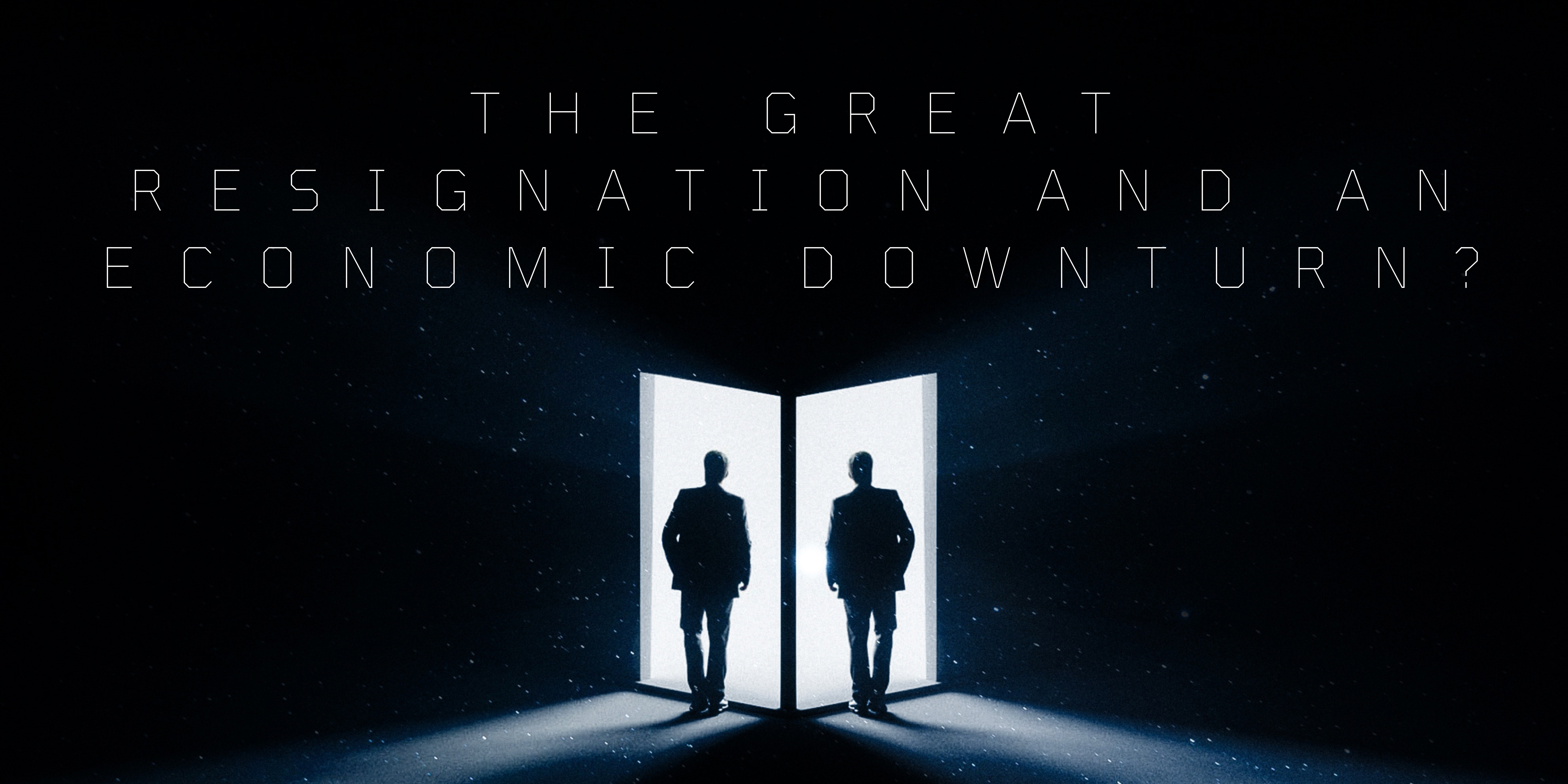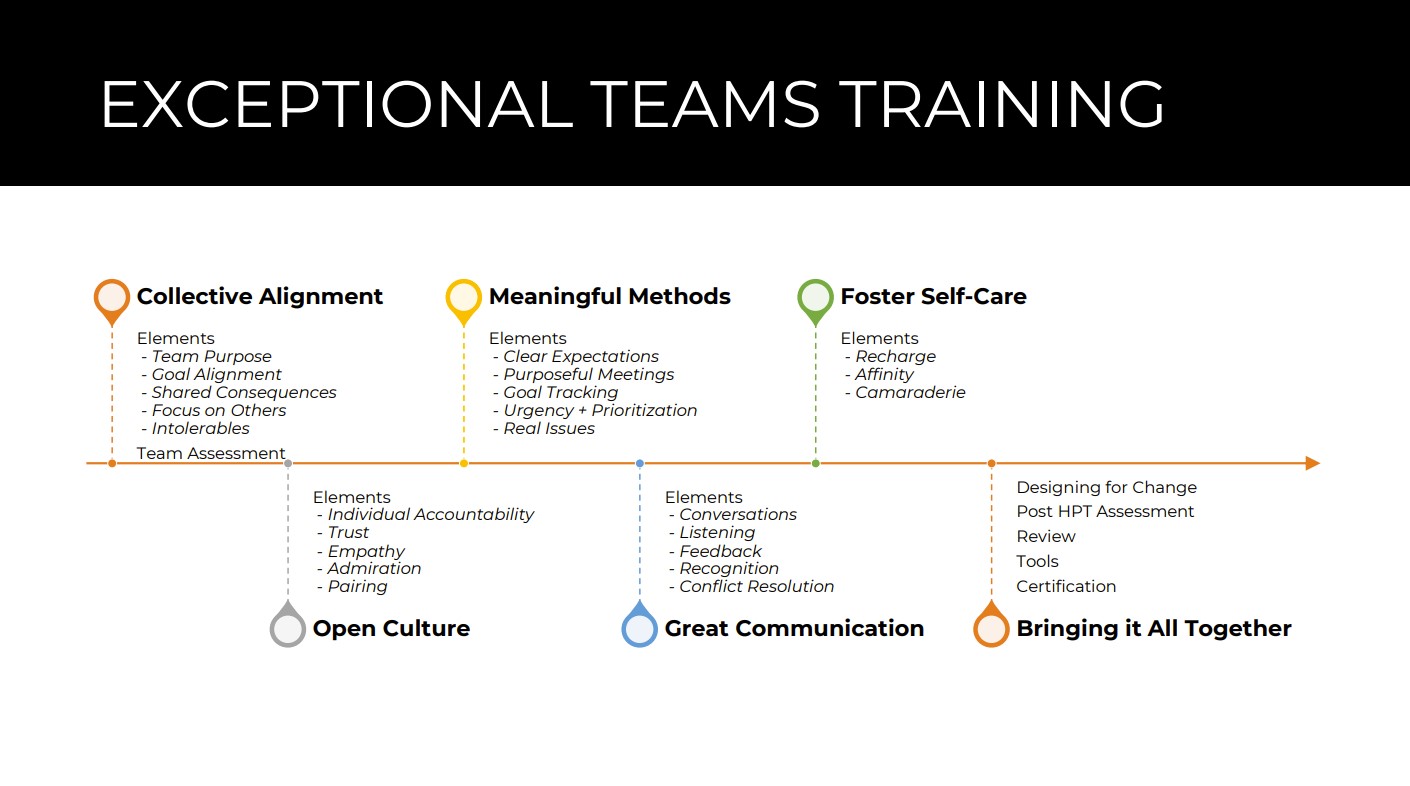“People aren’t tolerating toxic bosses and toxic cultures anymore, because they can leave and find other ways to make money without being in a negative situation . . . There are more opportunities for work now than ever before with our increased connectivity.”

We are living in interesting times right now, and this moment specifically, has two very complex elements that I wanted to reflect and write on - An anticipated economic downturn and the great resignation.
These two worlds bring two very interesting situations our organizations have to navigate. On one hand, companies have choppy waters ahead and plan to conduct layoffs and organizational-wide restructuring. On the other hand, employees are proactively leaving companies for greener pastures, self-employment, and companies that prioritize employee wellbeing and a healthy organizational culture.
The next 6-12 months should be very interesting and I am eager to see how organizations navigate this period of time.
The anticipated economic downturn:
I have heard many conversations with business leaders about the economy and the worries about a downturn coming this way. I honestly don't see it happening the way others do. Mainly because the job numbers are pretty impressive right now and the unemployment rate remains at 3.6%.
That's why I say I don't see this recession as the same as others do. It feels and looks pretty strange. GDP dropped slightly in Q1, but employment keeps rising. It appears something else is going on.
What is interesting is I still hear HR leaders intend on keeping talent acquisition budgets fairly high but companies still intend to conduct layoffs.
Hundreds of tech companies are announcing force reductions, and we can only get ready for more. In many cases, companies have "overhired" from the boom, so there are just too many people running around.

Planning on conducting a layoff? Be aware! - Every time you have a force reduction you damage your internal culture.
There is no way around it. People who leave are upset and the survivors feel the shock. It can also create this sense of grief for those that are lost and damage the overall confidence in the business and its leadership. But - It's important to remember how to handle the layoff. Think of it this way. Every employee you terminate is likely a customer, a reference, and a possible rehire. Treat them with respect, give them the best exit package you can, and try to reinforce that this was only a business decision.
The other topic of the year - "the great resignation."
About 40% of workers globally say they might leave their jobs in the next three to six months, according to McKinsey research.
“This isn’t just a passing trend, or a pandemic-related change to the labor market,” Bonnie Dowling, one of the report’s authors, told CNBC. “There’s been a fundamental shift in workers’ mentality, and their willingness to prioritize other things in their life beyond whatever job they hold . . . We’re never going back to how things were in 2019.”
The McKinsey research, which polled more than 12,000 individuals in the U.S., Canada, U.K., Australia, India, and Singapore, found that 41% of respondents said that a lack of opportunity for upward mobility at their company was the primary reason why they left. McKinsey also interviewed more than 2,800 people in six countries — the U.S., Australia, Canada, Singapore, India, and the United Kingdom — who had left their full-time jobs within the last two years to find out where workers are going. The report found that almost half (48%) of people who quit have pursued new opportunities in different sectors. HR departments are responding to the struggle to attract and retain employees.
“More employers have opened up their aperture in order to meet the yawning talent gap that they’re facing,” Dowling says. “They’re prioritizing skills over the educational background or previous job experience, which is creating more opportunities across sectors for job-seekers.” Dowling also observes: “People aren’t tolerating toxic bosses and toxic cultures anymore, because they can leave and find other ways to make money without being in a negative situation . . . There are more opportunities for work now than ever before with our increased connectivity.”
This brings two very interesting situations our organizations have to navigate. On one hand, companies have choppy waters ahead and plan to conduct layoffs and organizational-wide restructuring. On the other hand, employees are proactively leaving companies for greener pastures, self-employment, and companies that prioritize employee wellbeing and a healthy organizational culture.
How might we best navigate this reality?
Well first, for leaders and people everywhere, even though the economy is slowing down, this doesn't really mean it's a bad thing.
Everyone has been making money and business growth has been quite well. Now it's time to reassess and be more measured and allocate ourselves in more effective manners.
The role of human capital in the economy is going to become more important than ever. It is clear that we now live in a human-capital-centric world, and all major industries are going to need to be people-centric industries.
Overall, this is a healthy readjustment and I'm interested in how things will go.
But here are a few things you should think about for the next 3-6 months.
Are you planning on a lay-off?
Think about these two worlds. On one hand, 44% of people intend on leaving their jobs. On the other, companies plan on doing layoffs in the near future. Reflect on these two trends. Make sure you are aligning these actions with your people and not laying off the individuals that want to stay there. Especially if they are skilled individuals that can be retrained for other positions. If you are going to let go of a larger group of people, and potentially 44% of them already intend to leave, wouldn't it make sense to try to find those individuals and work out an exit package that ends up being a win-win for everyone? Let those who want to leave, leave. And those who want to stay, stay. At the end, completed effectively, you will have people exiting the company in a positive mindset, and the individuals remaining should still be fairly engaged - if not more engaged!
Trying to figure out where to focus your energy?
We are at another stage where we need to succeed. Be productive. Reach for high-performance at a higher level cause the expectations are different. That's why your work in growth and development is more important than ever.
I believe, where we are right now, looking at the economy, inflation, recession, major layoffs, and after all of these years of wild times...
Now we are back to - productivity, workforce engagement, leadership... all of these things that got on the back burner because we had to be more empathetic and pay attention to wellness with the pandemic and support each other to get through this.
The expectation is back to - we need to be productive. Now, this doesn't mean we won't be empathetic. This doesn't mean we don't also practice safety and security.
The next couple of months and really years are going to demand more of your full engagement and productivity and leadership than we probably have ever experienced.
This is going to be a very critical moment in your life, business, and career.
This is time for you to figure out how you can best lead right now. What are the best practices for your team to thrive and be productive right now? How can you level up the standard of excellence and standard for people to be on their A-game and perform? And do this without burning out and crashing.
High performance is all about succeeding over the long term while still maintaining well-being and positive relationships.
This idea that you have to burn out to succeed is more of old thinking than an accurate reality. This is an old limiting belief in our organizational cultures.
So double down on professional development, and enable ALL of your people to perform at a higher level. Performance and engagement are going to be more important than ever.
Are you ready to up your level of performance and engagement?
Enabling your organization to reach greatness and high performance starts with caring for your people's skill development. By building the right learning experiences around critical skills needed in the future, your people can help amplify the future growth of the company. Learning and organizational culture are the most critical pieces to solving your biggest challenges and making it on top after the crisis of today.
If you are ready, ask us about our culture & exceptional team training program.
In collaboration with Virtuositeam, we developed a program that includes a cohort-style learning experience - focused on improving collaboration, and interpersonal dynamics, tackling tough issues, and improving execution & performance. It enables your people to be leaders at all levels of the company, and act as culture champions along the way.


References:
Tech layoff Tracker and startup layoff lists. Layoffs.fyi. (2022, July 9). Retrieved August 14, 2022, from https://layoffs.fyi/
U.S. Bureau of Labor Statistics. (2022, August 5). Employment situation summary - 2022 M07 results. U.S. Bureau of Labor Statistics. Retrieved August 14, 2022, from https://www.bls.gov/news.release/empsit.nr0.htm
Joshbersin. (2022, July 26). It doesn't look like a recession to me. JOSH BERSIN. Retrieved August 14, 2022, from https://joshbersin.com/2022/07/it-doesnt-look-like-a-recession-to-me/
Joshbersin. (2022, June 14). Be careful with the layoffs. JOSH BERSIN. Retrieved August 14, 2022, from https://joshbersin.com/2022/06/be-careful-with-the-layoffs/




